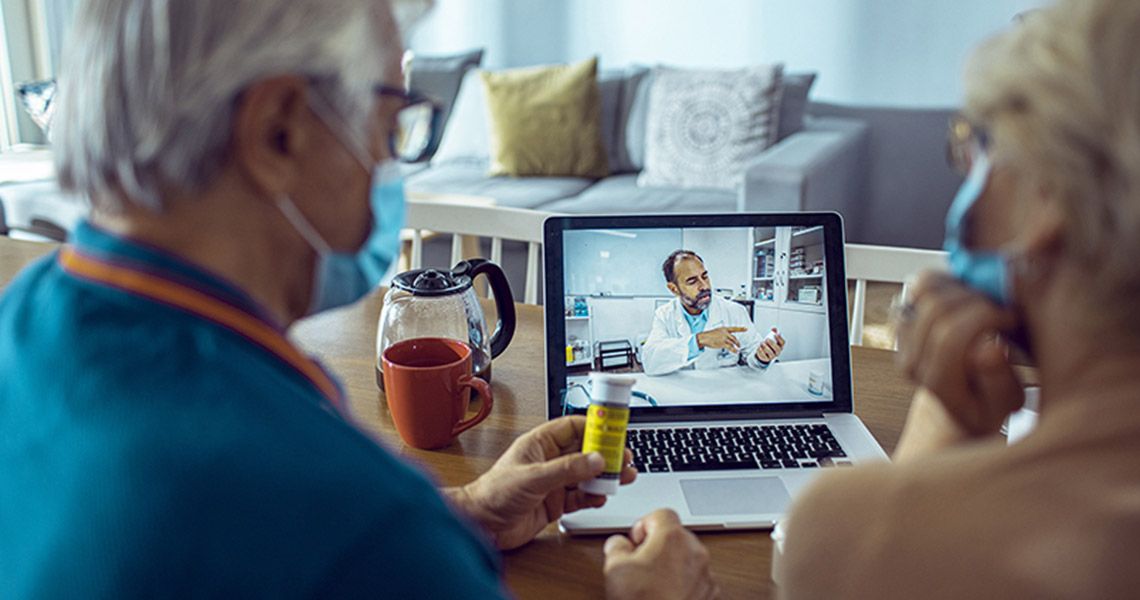Medicine is slowly evolving into a multimedia arena, one that melds in-person visits with technology-based care. This shift has been convenient and cost-effective for both patients and doctors, but it also has opened an avenue to care for a specific patient population: the elderly.
“Telehealth can be an easy and low-stress way for follow-up visits, especially with caregivers for persons living with dementia or patients living with functional impairments who have a hard time traveling to an office,” explained Elizabeth Cobbs, MD, professor of medicine at the George Washington University (GW) School of Medicine and Health Sciences (SMHS) and an internist, geriatrician, and palliative medicine doctor at The GW Medical Faculty Associates (MFA).
In the wake of the COVID-19 pandemic, which severely limited the ability for vulnerable elderly patients to travel to doctor’s appointments, the gerontology team like many departments across GW SMHS and the GW MFA, embraced telehealth technology to offer much-needed access to patients. Currently, a team led by Marc Garbey, PhD, research professor of surgery at GW SMHS, is taking lessons learned from those early days of the pandemic, to build a telehealth platform, which will eventually include computer vision analytics, robotics, and artificial intelligence. GW is serving as the clinical development and pilot site, and the team is planning to apply for grants in the future.
On a practical level, the gerontology team has observed that providing existing telehealth options has helped to break down barriers to care.
“Telehealth is a hugely valuable component of whole-person medical care that allows improved access to care,” said Cobbs. “Especially for geriatrics and palliative medicine, telehealth enables us to improve access to timely care and follow-up. Managed Medicare programs are more able to use telehealth flexibly since they do not rely on ‘bill¬able visits’ for their revenue … . Patients and families who are able to manage the technology have really liked it.”
Telehealth, however, has some limitations. During the pandemic, the Centers for Medicaid and Medicare allowed physician reimbursement for telehealth visits, but those policies are under review as the country transitions away from the COVID-19 public health emergency. For now, the Department of Health and Human Services has extended many of the telehealth flexibility waivers through Dec. 31, 2024. The extension allows for telehealth services in any geographic area in the country, rather than just rural areas, and patients may continue to choose telehealth for visits that Medicare covers rather than requiring travel to a health care facility. Additionally, for patients who lack the tech-savviness needed for telehealth or do not have a caregiver who can help them navigate computers, services may still be provided using audio-only technology (such as a conventional telephone).
“The future of how we connect with our patients will benefit from as much user-friendly tech as we can create,” said Barbara L. Bass, MD, RESD ’86, professor of surgery, Walter A. Bloedorn Chair of Administrative Medicine, vice president for health affairs and dean of GW SMHS and CEO of the GW MFA, “not to replace human touch but to augment our connections.”




